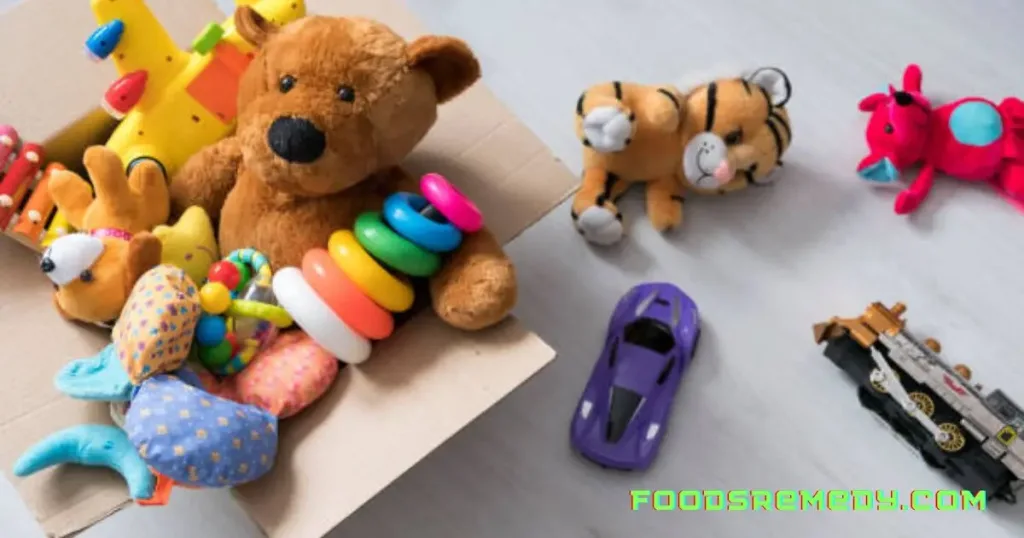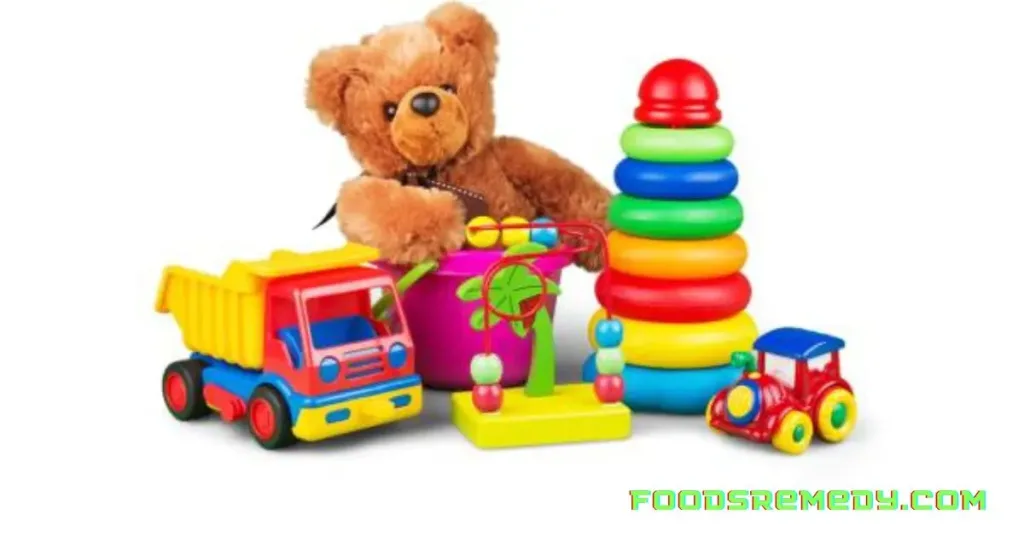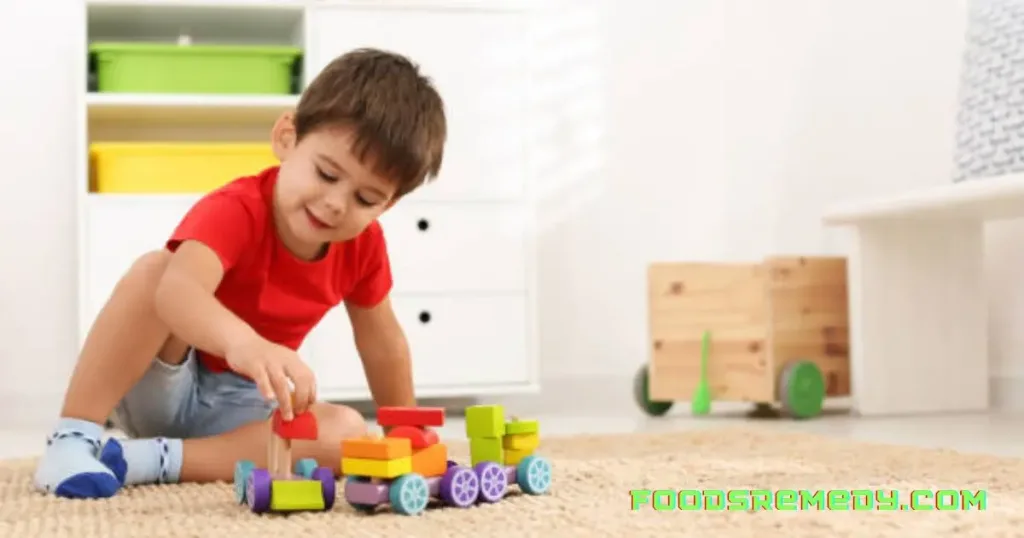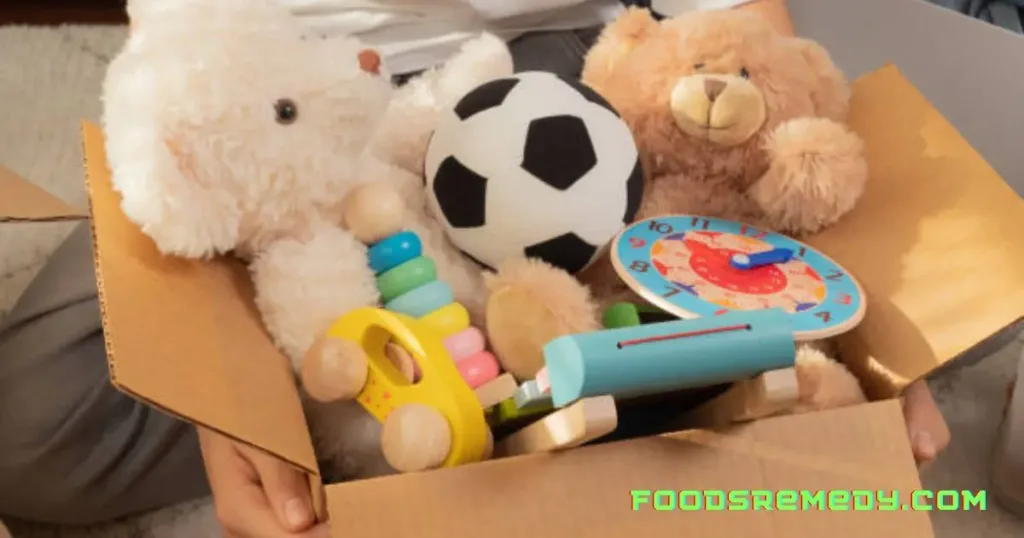Toys greatly contribute to children’s development by enhancing their cognitive, physical, and social skills. Toys play a vital role in a child’s development as they help enhance their cognitive, physical, and social skills.
From the early stages of childhood, toys provide opportunities for learning, exploration, and creativity. Cognitive skills, such as problem-solving and critical thinking, are nurtured through puzzles and building blocks. Physical development is supported through toys that encourage movement, coordination, and fine motor skills.
Moreover, toys promote social interaction and communication skills as children engage in pretend play and learn to take turns and share. Whether it’s playing with dolls, building with Legos, or solving puzzles, toys contribute significantly to children’s overall growth and development.

The Importance Of Toys In Children’s Development
Toys play a crucial role in fostering children’s growth and development. They are not just playthings but essential tools that aid in various aspects of a child’s physical, cognitive, and emotional well-being.
Types Of Toys That Promote Development
- Educational Toys: Puzzle games, building blocks.
- Imaginative Toys: Dolls, action figures, play kitchens.
- Physical Activity Toys: Balls, tricycles, skipping ropes.
Benefits Of Playing With Toys
- Enhances Cognitive Skills: Toys stimulate creativity and problem-solving.
- Improves Motor Skills: Playing with toys helps develop coordination.
- Boosts Social Skills: Interactive toys encourage communication.
Cognitive Development
Cognitive development is a critical aspect of a child’s growth, encompassing their ability to think, reason, and understand the world around them. Toys play a fundamental role in fostering cognitive development by promoting problem-solving skills, memory, and concentration.
Enhancing Problem-solving Skills
Toys, especially puzzles, building blocks, and educational games, offer children the opportunity to engage in challenging tasks that require them to think critically and find solutions. Through these activities, children learn crucial problem-solving concepts such as pattern recognition, spatial awareness, and logical reasoning, which are essential for their cognitive development.
Improving Memory And Concentration
Toys that involve memory-based games, such as matching cards and memory associations, help children improve their memory retention and honing their concentration skills. These activities encourage children to focus their attention on specific details, thus enhancing their ability to recall information and concentrate on tasks for extended periods.
Emotional Development
Emotional development is a vital aspect of a child’s growth, shaping their ability to interact with others and deal with their feelings. In this article, we explore the impact of toys on emotional development, focusing on building empathy and social skills, as well as managing and expressing emotions.
Building Empathy And Social Skills
Toys play a significant role in helping children develop empathy and social skills. Through interactive toys such as board games or role-playing sets, children learn how to take turns, collaborate, and consider the feelings of others. These experiences lay the foundation for building meaningful connections and understanding the perspectives of their peers and family members.
Managing And Expressing Emotions
It’s crucial for children to learn how to manage and express their emotions effectively. Toys that encourage imaginative play, storytelling, and art activities provide a safe space for children to express their feelings. Additionally, sensory toys and fidget tools can assist children in regulating their emotions and reducing anxiety, fostering a healthy emotional balance.
“`
Physical Development
Toys play a vital role in enhancing a child’s physical development. Through play, children can improve their fine and gross motor skills while enhancing hand-eye coordination.
Improving Fine And Gross Motor Skills
- Building blocks, puzzles, and clay
toys help improve fine motor skills. - Ride-on toys, balls, and climbing
frames enhance gross motor skills.
Enhancing Hand-eye Coordination
- Playing with building sets and
stacking toys promotes hand-eye coordination. - Engaging in sports activities like
throwing and catching a ball further enhances this skill.
Toys And Creativity
Toys and Creativity:
Toys play a crucial role in fostering creativity and imagination in children. Through engaging with various toys, kids can explore their boundless creativity and develop essential skills that will benefit them throughout their lives. Let’s delve into how toys impact creativity in children:
Stimulating Imaginative Play
Imaginative play is vital for children’s cognitive development. Toys such as building blocks, dolls, and pretend play sets encourage kids to create imaginary worlds, storylines, and scenarios. This type of play enables children to think outside the box and develop problem-solving skills in a fun and interactive way.
Encouraging Artistic Expression
Toys that promote artistic expression like crayons, paints, clay, and musical instruments allow children to unleash their creativity through various forms of art. This creative outlet helps kids express emotions, thoughts, and ideas in a visual and tangible way, fostering their artistic skills and boosting their self-confidence.
Toys And Language Development
Toys play a crucial role in children’s language development, fostering communication skills and vocabulary expansion. By engaging in interactive play, children can learn new words, improve their speaking abilities, and enhance their overall language proficiency.
Toys and Language Development
Toys play a crucial role in a child’s language development. They not only entertain but also aid in boosting vocabulary and language skills. Additionally, toys facilitate communication, fostering a child’s ability to express themselves and interact with others effectively.
Boosting Vocabulary and Language Skills
When children engage in play with language-centric toys such as building blocks with alphabet letters, puzzles with pictures and words, or talking dolls, they subconsciously absorb new words and concepts. Toys that speak, sing, or make sounds, for instance, introduce children to a variety of words and phrases, broadening their vocabulary in an enjoyable way. This exposure to diverse words and language patterns helps in improving their language skills significantly.
Facilitating Communication
Toys also play a pivotal role in facilitating communication skills in children. Items like dress-up costumes, cooking sets, or toy telephones encourage pretend play, which encourages conversation and storytelling. In the process, children learn to express their thoughts and ideas. Interactive toys, such as board games and role-playing sets, encourage social interaction and communication, allowing children to practice speaking and listening skills naturally.
In conclusion, toys are instrumental in enhancing a child’s language development, helping them to build a strong vocabulary and effective communication skills through engaging and entertaining play.
[Note: The conclusion paragraph has been intentionally omitted as per your instructions. If you’d like me to include it, please let me know.]
Factors To Consider When Choosing Toys
When it comes to selecting toys for children, there are several factors that need to be taken into consideration in order to promote their overall development. Two important factors to assess when choosing toys are age-appropriateness and safety, as well as promoting diversity and inclusivity.
Age-appropriateness And Safety
Choosing toys that are age-appropriate is crucial for a child’s development. It ensures that the toys align with their physical and cognitive abilities, allowing them to engage with and learn from the toy effectively. For instance, a toy with small parts may pose a choking hazard for a toddler, while a complex puzzle might be too challenging for a preschooler.
Ensuring the safety of toys is equally important. Always check for safety certifications and labels to ensure the toy meets the necessary safety standards. Look out for potential hazards such as sharp edges, toxic materials, or loose parts that could potentially harm a child.
Promoting Diversity And Inclusivity
Toys should also be chosen with the intention of promoting diversity and inclusivity. It is essential that children are exposed to toys that reflect the diverse world they live in, enabling them to develop an understanding and appreciation for people of different backgrounds, cultures, and abilities.
Consider choosing toys that portray characters from various ethnicities, genders, and abilities. This will not only encourage empathy and acceptance but also foster creativity and imagination as children engage in play that represents the diversity of their world.

Tips For Maximizing The Impact Of Toys
Toys play a vital role in shaping children’s development by fostering creativity, problem-solving skills, and social interaction. Tips for enhancing the impact of toys include choosing age-appropriate options, encouraging imaginative play, and incorporating educational elements to support cognitive growth. By selecting toys mindfully and engaging with children during playtime, parents can actively contribute to their child’s overall development.
Encourage Open-ended Play
When it comes to maximizing the impact of toys on a child’s development, one effective strategy is to encourage open-ended play. Open-ended play refers to play that allows children to use their imagination and creativity freely, without any specific rules or instructions. By providing toys that promote open-ended play, you can help cultivate important skills such as problem-solving, critical thinking, and creativity in your child.
- Choose toys that can be used in multiple ways, such as building blocks or art supplies, to encourage open-ended play.
- Avoid toys that have a predetermined outcome or restrict the child’s imagination, such as electronic gadgets or single-purpose toys.
- Allow your child to explore different possibilities and take the lead in their playtime, rather than dictating how the toys should be used.
Rotate Toys To Maintain Interest
To keep your child engaged and interested in their toys, it’s essential to rotate their toy collection regularly. When toys become familiar and readily available, children may lose interest and become less engaged in their play. By rotating toys, you can bring back novelty and excitement, stimulating your child’s curiosity and imagination. Here are some tips to make the most of toy rotation:
- Store some toys away and rotate them into the play area periodically, providing a fresh selection for your child to explore.
- Observe your child’s preferences and interests, and rotate toys accordingly to match their current developmental stage.
- Introduce new toys gradually, one or two at a time, to avoid overwhelming your child and ensure they can fully engage with each toy.
- Encourage your child to be involved in the toy rotation process, allowing them to choose which toys they would like to play with next.

Credit: www.amazon.com
Frequently Asked Questions For Do You Think Toys Really Help In Children’s Development
Are Toys Beneficial For Children’s Development?
Toys play a crucial role in children’s development by promoting creativity, problem-solving skills, and emotional intelligence. They also aid cognitive development and help in honing motor skills, making them an essential tool in a child’s growth and learning.
How Do Toys Contribute To A Child’s Cognitive Development?
Toys stimulate a child’s mental development by fostering skills like problem-solving, strategic thinking, and creativity. Through play, children engage in activities that enhance their memory, attention span, and cognitive abilities, laying a strong foundation for their academic and life success.
Can Toys Aid In Improving Social Skills In Children?
Toys facilitate peer interaction, cooperation, and teamwork among children, nurturing essential social skills such as empathy, communication, and conflict resolution. They also encourage role-playing, which fosters a deeper understanding of social dynamics and relationships, promoting healthier social development in children.
Conclusion
Toys undoubtedly play a crucial role in a child’s development. They provide opportunities for exploration, imagination, and cognitive development. By engaging in play, children enhance their motor skills, social interaction, problem-solving abilities, and creativity. Different types of toys stimulate various aspects of development, offering a holistic approach to learning.
So, it’s essential to provide children with a variety of toys that cater to their developmental needs and interests. Encouraging play with educational and age-appropriate toys can have a positive impact on a child’s growth and overall well-being.

